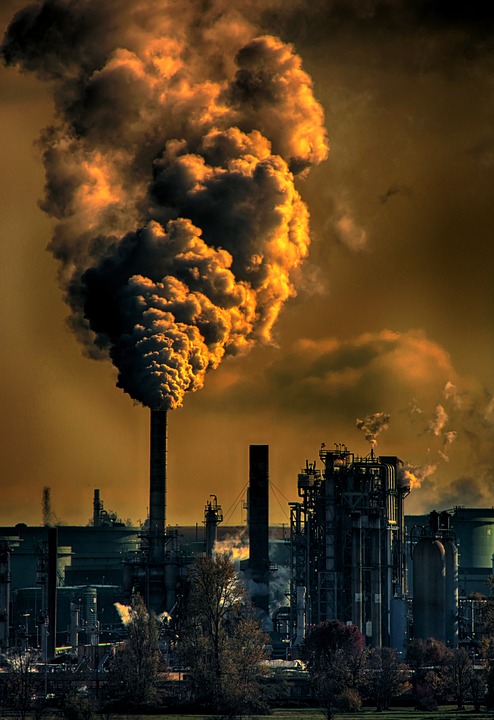How to Keep Spices from Clumping in a Humid Climate: Tips and Tricks for Freshness
Maintaining the freshness of spices in a humid climate can be quite challenging. High humidity levels lead to moisture absorption, which causes spices to clump together, making them difficult to use and diminishing their flavor. This guide provides practical solutions to prevent clumping and ensure your spices remain fresh.
1. Why Spices Clump in Humid Climates
The Effect of Moisture
Spices are hygroscopic, meaning they naturally absorb moisture from the air. In humid environments, this moisture can cause spices like salt, garlic powder, paprika, and turmeric to clump together.
Loss of Flavor and Texture
Clumping not only makes spices difficult to use but also reduces their aroma and flavor over time as moisture breaks down their essential oils.
2. Proper Storage Techniques to Prevent Clumping
Use Airtight Containers
Store spices in airtight glass jars or plastic containers to keep moisture out. Look for containers with tight-sealing lids to prevent air from entering.
Store Spices in a Cool, Dry Place
Keep spices away from heat sources such as stove tops and dishwashers. A cool, dark pantry is ideal for maintaining spice quality.
Avoid Using Wet Spoons
Always use dry utensils when handling spices. If you need to season food while cooking, pour the spice into a small dish instead of shaking it directly over steaming food.
3. Adding Desiccants to Keep Spices Dry
Rice
Uncooked rice is a natural desiccant that absorbs moisture. Place a few grains in the spice container, wrapped in cloth to keep it separate from the spices.
Silica Gel Packets
Silica gel packets can effectively absorb moisture inside spice containers. Ensure they do not come into direct contact with the spices.
Saltine Crackers
Placing a few saltine crackers in spice containers can help absorb excess moisture; replace them regularly as they become saturated.
4. Using Anti-Caking Agents in Spices
Cornstarch or Flour
Adding a small amount (about 1/2 teaspoon) of cornstarch or flour can help prevent clumping by absorbing excess moisture without significantly altering flavor.
Rice Flour
Rice flour is another option that absorbs moisture without affecting taste, making it suitable for spices like garlic powder and onion powder.
5. Store-Bought Solutions for Clump-Free Spices
Commercial Anti-Caking Agents
Some spice brands include anti-caking agents such as calcium silicate or silicon dioxide to help keep spices dry. Check labels when purchasing pre-ground spices.
Specialty Spice Containers
Consider using spice jars with built-in desiccants or moisture-resistant seals designed specifically for humid environments.
6. Additional Tips for Keeping Spices Fresh
Buy Whole Spices and Grind Fresh
Whole spices have a longer shelf life and are less prone to clumping. Invest in a spice grinder or mortar and pestle for grinding as needed.
Freeze Bulk Spices
Freezing larger quantities of spices can help prevent moisture exposure. Store them in freezer-safe bags or containers and thaw only what you need.
7. How Often to Check and Refresh Spices
Regularly Check for Clumps
Inspect your spices periodically for signs of clumping or loss of aroma. Shake containers occasionally to break up any minor clumps before they worsen.
Replace Spices When Necessary
Ground spices should be replaced every 6-12 months for optimal flavor and freshness. Label containers with purchase dates for easy tracking.
FAQs
Why do spices clump in humid climates?
Spices absorb moisture from humid air, leading to clumping and loss of freshness.
What can I put in spice containers to prevent clumping?
You can add rice grains, silica gel packets, or saltine crackers to absorb moisture.
Can I refrigerate or freeze spices?
Yes, freezing can help prevent moisture absorption; just ensure they are stored in airtight containers.
How often should I replace my spices?
Ground spices should be replaced every 6-12 months for best flavor.
Does adding cornstarch or flour affect the taste of spices?
Generally, adding small amounts does not affect taste but helps keep them dry and clump-free.
Conclusion
To keep your spices clump-free in humid climates, focus on proper storage techniques, use desiccants, consider anti-caking agents, and regularly check your spice inventory. By following these tips, you can maintain fresh, flavorful ingredients that enhance your culinary creations even in challenging environments. Experiment with different storage solutions to find what works best for you!

Kyle Whyte is a notable scholar and professor at the University of Michigan, holding positions such as the George Willis Pack Professor in the School for Environment and Sustainability and Professor of Philosophy. Specializing in environmental justice, his work critically examines climate policy and Indigenous peoples’ ethics, emphasizing the nexus between cooperative scientific endeavors and Indigenous justice. As an enrolled Citizen Potawatomi Nation member, he brings a vital perspective to his roles as a U.S. Science Envoy and member of the White House Environmental Justice Advisory Council. His influential research is supported by various prestigious organizations including the National Science Foundation, and disseminated through publications in high-impact journals. Kyle actively contributes to global Indigenous research methodologies and education, with affiliations to numerous institutes and societies dedicated to traditional knowledge and sustainability. Recognized for his academic and community engagement, Kyle has earned multiple awards and served in various visiting professorships. His efforts extend to leadership positions on boards and committees focused on environmental justice nationwide.
